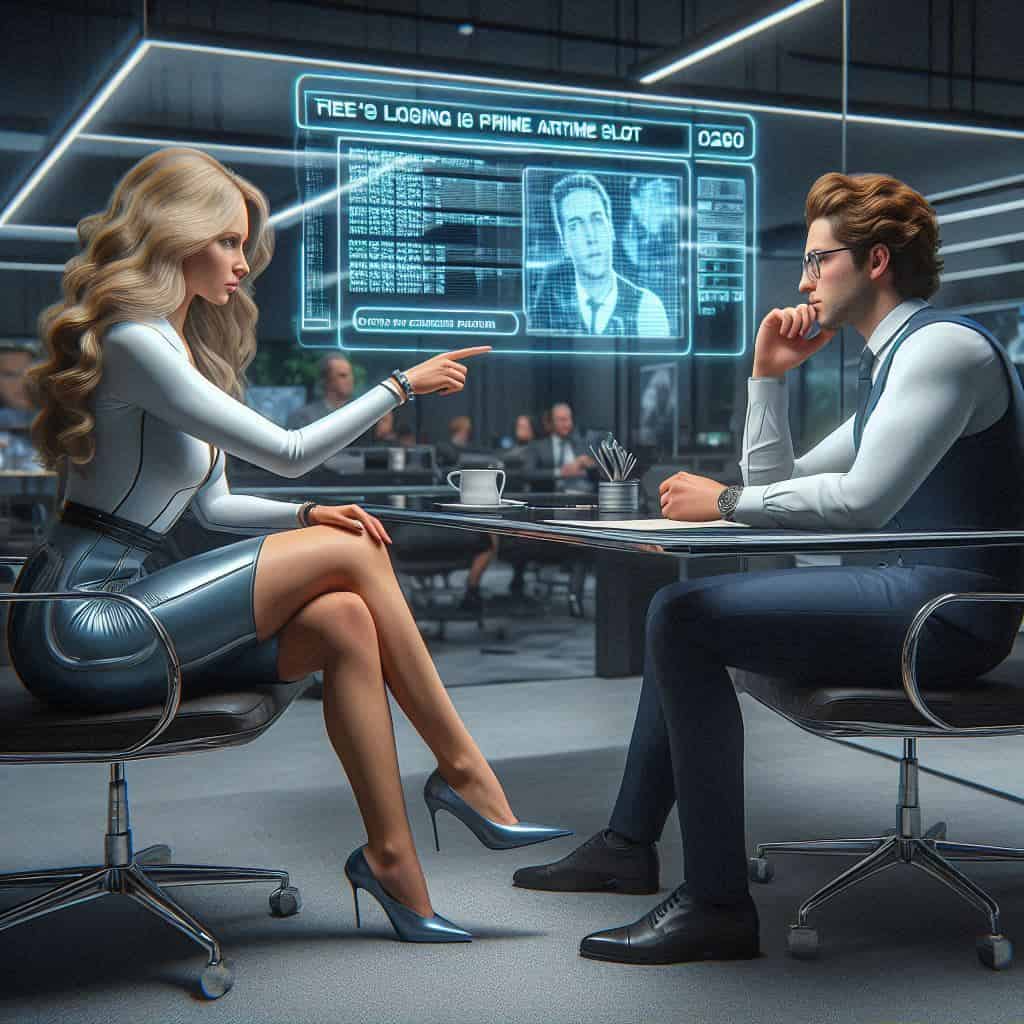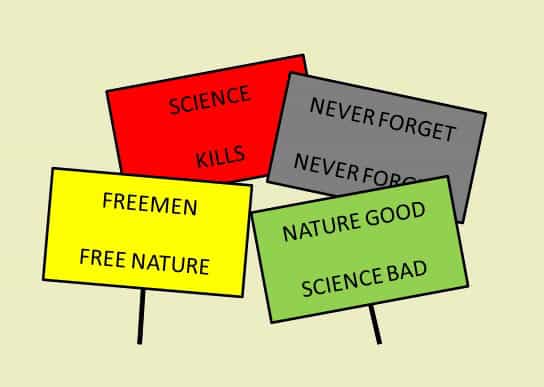10 Feet in 100 Years
Homeless
Tues evening June 4, 2233
Society is made up of two great classes; those who have more dinners than appetite,
and those who have more appetites than dinners.
Nicholas Chamfort (1740-1794, French)
The June evening hung heavy over the hills of north Baltimore, a sultry embrace that clung to the landscape. Meanwhile, the rainstorm had retreated, leaving behind a damp earth and a chorus of dripping leaves. The air, thick with humidity, bore the promise of secrets waiting to unfurl. As the evening progressed, at the heart of this verdant enclave stood the Cisneros Estate, a pearl of opulence nestled amidst the trees. Its sprawling grounds boasted manicured lawns, ancient oaks, and a shimmering pond where fireflies danced in the twilight. Inside the estate, tonight, the estate’s grand ballroom was transformed into a celebration—a symphony of achievement and ambition.
Meredith stepped into the grand ballroom, her shoulders sagging ever so slightly under the weight of the day’s toil. The delicate fabric of her gown brushed against her skin, a subtle reminder of the transition from sterile hospital corridors to this opulent setting. She paused, her eyes briefly closing as she inhaled the mingled scents of rain-soaked earth and exotic aromas. A soft exhale escaped her lips, carrying away the tension that had gathered like storm clouds. As she opened her eyes, a faint smile touched the corners, not quite reaching her weary gaze—a silent acknowledgment of the sanctuary she’d found, if only for a moment.
The screen pavilion, an ethereal structure of shimmering nanoglass, overlooked the moonlit gardens. Here, the guests gathered—a gaggle of influencers—their holographic avatars sipping virtual champagne. Governor Norris, his digital visage stern yet congenial, exchanged pleasantries with the leader of Gilbert Health. Their words, encrypted and coded, held the weight of treaties and clandestine alliances.
The scent of customized aromas hung in the air, a tantalizing dance of flavors. Chefs, their faces obscured by culinary masks, conjured dishes that blurred the boundaries between nature and technology. Lab-grown steaks sizzled alongside foraged mushrooms, while vegetarian delights sparkled with synthesized spices. The guests indulged, their taste buds deceived by the alchemy of gastronomy.
And then there was Meredith’s father, Javier Cisneros, the enigmatic host. His eyes, once stern and disapproving, softened as they met his daughter’s gaze. They had clashed over her choice of medicine—the purity of healing versus the pragmatism of profit. Plastix, his corporate empire, had reshaped the world with its innovations, but at a cost—the very climate that now simmered outside.
Yet tonight, as the holographic raindrops clung to the pavilion’s transparent walls, Javier saw an opportunity. Meredith’s community service, her unwavering commitment to needy patients, could be a balm for Plastix’s tarnished reputation.
He leaned in and pressed a kiss to her cheek, his smile beaming. “Meredith, it warms my heart to see you here at this celebration in your name.”
Meredith’s response was edged with frustration. “As if I had a say in the matter. You leveraged my living situation against me.”
Acknowledging with a tilt of his head, Javier added, “Consider it a nudge towards sociability. And tonight, let’s not burden our guests with solicitations for your philanthropic endeavors. It’s health care advocacy for the homeless this time, correct?”
With her jaw set firm, Meredith replied, “As a physician, advocating for accessible health care for those who lost their homes in storms is a duty, not a mere whim.”
Javier’s tone took on a patronizing note as he addressed her, reminding her of her mother’s insistence on a kingly name for her daughter. “My little sovereign,” he said, “it’s wise not to spurn those in power, despite the world’s many ills.”
She didn’t forgive him—not yet. But as the holographic moon bathed her face, Meredith understood. The hills whispered their secrets, and the rainstorm’s resonance lingered. In this convergence of power and purpose, she would serve—not just as a doctor, but as a catalyst for redemption.
In the hallowed space near the nanoglass pavilion, the amalgamation of Governor Norris avatar, Lois Borkowski—Chair of Gilbert Health—and Meredith came together. His avatar flickered, a glitch in the seamless facade of the elite gathering. Helene Emerson represented the governor IRL. Javier had orchestrated this encounter—the merging of flesh and code—for a purpose. Meredith mustn’t falter; she mustn’t reveal her peculiarities. Her lineage traced back to Great Aunt Mia, whose eccentricities still echoed through their blood.
The leader of Gilbert Health studied Meredith. Her eyes, sharp as scalpels, dissected the young doctor. Beside her, Nathan Garret, her academic wingman, sported a festive green and blue bowtie that due all attention away from his awkward face. He observed the great and powerful, perhaps hoping their importance would rub off on him.
“Congratulations, Dr. Cisneros,” Lois said. She asked Nathan, “Did you send her the acceptance I ordered?”
“Yes, I always do what you ask as soon as I can.” Nathan thrust his compad toward her, but brushed it aside.
“The medical staff is ready to assist you when you accept the resident’s position. You are accepting, aren’t you?”
“I haven’t responded yet, not because I have second thoughts, but because I am catching up on tasks that I had set aside.” Meredith’s gaze swept the pavilion. The holographic string quartet played on their music, a backdrop to her purpose. She leaned closer to the influential woman, her words coded yet urgent. “Chair Borkowski, can I count on your approval on my volunteer hours and for additional supplies to aid the flood-displaced people? The need overwhelms the facility.”
Lois Borkowski’s response was clinical, devoid of empathy. “I applaud your efforts for their care, but our resources are already stretched to the maximum. Direct them to the emergency ward. That’s the protocol. The homeless enclaves are outside our geographic authorization, but they can present themselves at the ER, be triaged, and receive necessary treatment.”
Meredith clenched her jaw. The bureaucracy was a wall, and she was a desperate climber. She knew the ramble shacks, the makeshift homes clinging to the flourishing forest’s edge outside the city.
She turned to Governor Norris and asked couldn’t the state help, but the governor didn’t answer. His digital glitch worsened. The propitious problem leads to a firewall of silence. Helene Emerson, his proxy, filled the gap. “Doctor Cisneros, state resources flow to Gilbert Hospital,” she said. “How they are deployed is a medical decision for which the state plays no active role; however, the Governor has authorized additional encampments in the state parks for those who choose it.”
This meant that even more people would need medical care. Meredith’s resolve hardened. She must bridge the gap and make the system work.
And then, like a rift in reality, Tamesha Li arrived. Meredith’s friend since their undergraduate days at Gilbert University. Tam gushed over the opulence of the celebration. Meredith’s discomfort was a secret she held close.
The estate pulsed with secrets. And Meredith, caught between duty and defiance, wondered if Tam’s peculiarities were her greatest strength or perhaps be her downfall.
Tamesha deftly seized a tasty morsel from the NATURAL table, its crispy shell yielding to her bite. Her eyes closed in gustatory delight, and a cloth napkin dabbed at her lips. “I’m never prouder of you than when you take advantage of your family’s wealth,” she declared, her voice a velvet purr.
“I didn’t ask for this,” Meredith protested, her gaze sweeping the crowd. “Papi insisted.”
Her friend’s thick brown eyebrows arched. “Keep that attitude. It’s adorable.” Tamesha’s gaze roamed the yard and the pavilion, assessing the players. “Where’s Felix?”
“Do you mean Cousin Felix?”
“Who else? The hunk with the devious mind.” Tamesha’s laughter danced on the edge of secrets.
Meredith shook her head. “I haven’t seen him yet. Papi pulled me into influence peddling before I got a chance to circulate. Gilbert Health and the state each try to escape their role in providing healthcare for the displaced.”
Tamesha switched topics, her expression sobering. “I hope your residency starts soon. Before I came here, I was filling out forms for permanent Maryland residence, but had to stop to direct a family to the hospital. They wheezed as they trod with meager energy toward the city.”
“Were they well nourished?” Meredith asked, her empathy genuine.
“Hah, does anybody living in another person’s house eat well?” Tamesha’s eyes held a world of stories. “Many report the hospital turns away non-residents. A storm flooded this family out of their home in South Carolina. Now they live with relatives. When you, Dr. Cisneros, are at the hospital, you will make sure they get treated, won’t you?”
“I’ll do everything I can,” Meredith said, her resolve unwavering, “but I am bound by rules, which ensure the maximum number of people get the highest quality care.”
Tamesha’s laughter held a bitter edge. “So naïve. Rules ensure that the most important people get the best care. Everyone else is sifted through a strainer that gets finer and finer, the lower in the social strata you live.”
“That’s not true. Medical care is universal.” A shadow crossed Meredith’s face as she contemplated the uncertainties she faced during the day in the clinic and felt here tonight.
“Don’t worry yourself on this party day,” Tamesha’s voice held both warmth and warning. “But don’t forget your conscience when you’re a medical resident.” Her gaze lingered on Meredith, as if measuring the weight of the years between undergrad and the present. “You were so funny back in undergrad. Believing that science would find a solution to global warming, storm surges, and melting ice caps.”
“Scientists are working hard on it,” Meredith insisted, her conviction unyielding. “We’ve shifted most of our land vehicles to electric. Home-based fusion packs promise unlimited energy with no pollution. Sea walls protect our harbor.”
Tamesha did not rise to the bait of scientific headlines. “Did I not just give you a specific case of system failure? They won’t treat many homeless.” Her eyes held the weight of countless battles fought in courtrooms. “Those people are real and suffering. You mention palliatives, not solutions. I applaud scientists for helping, but the people I represent in legal proceedings are suffering now. Perhaps you don’t know, several thousand tents are being set up for more displaced?”
“Hello,” a well-dressed man descended the pavilion stairs, his stride confident. Felix Cisneros joined them. “What are my two favorite ladies discussing that merits such intensity?” His hand rose in a playful gesture. “No, don’t tell me. This is a party, not a wake.”
He kissed Meredith’s cheek, the familial bond strong. “We’re very proud of you, cousin. The world will know that we, Cisneros, are valuable contributors to the community.”
“I see, Felix,” Meredith’s tone held both gratitude and skepticism. “You and father have arranged this party to benefit the business as much as to celebrate my achievement.”
Meredith was surprised when Tamesha answered, her voice measured. “An action that serves two goals is better than serving one. Bravo, Felix.” She touched his jacket sleeve, a silent acknowledgment of their shared understanding.
“Meredith, how you wrangled such a fine friend when you are so gloomy, I’ll never know. But I’m thankful you did. Come on. Your father has a personal blend that I want to sample. Can I have a beautiful woman on each arm, at least for a moment?”
Two drinks and a cascade of meaningless comments later, Meredith felt light-headed. She drifted away from Tamesha and Felix, who remained blissfully unaware. The VEGETARIAN table beckoned. She hadn’t eaten since breakfast. Her eyes settled on a black-bean canape. As she reached for it, though, her senses wavered, and she stumbled. A server materialized at her side to assist her.
His loose sleeve slid up his arm, revealing a splotchy, angry rash. Meredith’s medical instincts kicked in. “What’s that?” she asked, her concern genuine.
Liam pulled his cuff down, attempting to hide the red blotches. “Nothing,” he muttered, but his discomfort betrayed him.
“It’s not nothing,” Meredith insisted. “How long have you had it?”
“Not long, but it does itch,” Liam admitted, glancing around nervously. “You can’t tell anyone. I can’t lose my job.”
Meredith nodded, her resolve firm. “I won’t, but it must be treated.” She squinted at his name tag. “Liam, is there poison ivy on the grounds?”
Liam’s eyes darted. “No. It’s from the Brazilian peppertree. Damn sap.”
“You must get that looked at,” Meredith urged. “Ignoring it won’t help.”
Liam hesitated. “I would, but where?”
“Don’t you have a doctor?” Meredith asked.
He shook his head. “No, but we have a clinic—in a Plastix outbuilding. Open Fridays.”
“That’s not good enough. You need to be treated right away. Can I meet you there tomorrow? Outside the building.”
“I can’t, but newcomers asked me to take them to the old Daniels Dam where your friend, Tamesha, will help them with a legal matter.”
The thought of taking Liam to the hospital emergency ward crossed her mind. But reality intruded—the overcrowded waiting rooms, the triage system stretched thin. He might languish there for hours, maybe an entire day, maybe be turned away.
Meredith made her decision. She knew it was up to her. She would treat him, tend his wounds, and ease his pain. Beyond this immediate act of compassion, she wouldn’t relent. She would use her voice, her influence, to shake the foundations of society organizations. She would demand change—for Liam, for the countless others who suffered silently, their cries drowned out by bureaucracy and indifference.
Jun 5, 2233 Wednesday
Optimism is the lack of information.
Faina Ranevskaya (1906-1984, Russian)
In the summer of 2233, the Earth’s climate had transformed drastically. The once predictable weather patterns were now a tapestry of extreme conditions, and this day was no exception. The sun blazed in the sky, its heat amplified by the dense, moisture-laden air—a remnant of the recent catastrophic floods. The atmosphere shimmered with a hazy mirage, making the horizon appear as if it were a scene from a dream.
Meredith stepped into the eVehicle, her attire a blend of function and fashion. She wore a sleek, silvered jumpsuit made from thermo-regulating fabric, designed to adapt to her body’s temperature and the external environment. The suit’s fibers were interwoven with micro solar filaments that absorbed energy, powering the small cooling unit on her back. Tamesha, on the other hand, donned a lightweight, iridescent robe that changed color with her movements. It was coated with a thin, water-repellent layer, a necessity for anyone working in the flood zones. Her boots were tall and sealed, equipped with sensors to detect and adjust to varying water levels.
As they settled in the eV, its AI system promptly initiated a health and safety check, scanning their biometrics to ensure they were fit for the day’s mission. The vehicle’s interior was a sanctuary from the outside world, with air purifiers and a climate control system that mimicked a gentle spring day. Meredith and Tamesha were a part of a new world, one where technology and human resilience had merged to face the challenges of a planet in flux. Their journey was not just a commute; it was a testament to the enduring spirit of service and innovation.
Meredith placed her medical bag on the floor. As she settled into the passenger compartment, Tamesha chuckled. “Everyone will be impressed by your classy clothes, Doctor Cisneros.”
“Hush, Tam,” Meredith replied. “I was at the clinic last week, but today is unofficial. I’m not fully authorized. I’m just helping a friend whose rash caught my attention.”
Tamesha rolled her eyes. “Breaking rules. That’s not like by-the-rule-book friend.” And Liam, Meredith’s friend? They only met him yesterday when he served at her party. “Let me see your shoes.”
Meredith pulled up her pants legs, revealing brilliant white, unscuffed, rubber-soled walkabouts. “They look comfortable,” Tamesha observed, “but they won’t be pristine after our trek.”
Meredith settled into her seat. “Aren’t we driving there?”
Tamesha’s finger danced across the console, initiating their journey. “Sweet innocent one. Half of the roads and bridges are closed.” She instructed the eV’s autopilot, “Take us to the Harbor Ferry.”
The sun rode high above the treetops as they shuttled across the harbor, transferring at Elkridge Landing to the river ferry. By the time they stepped onto the Daniels Pier, it was after 11 o’clock—and a muddy trail lead into the forest.
Meredith handed Tamesha a pair of purple disposable gloves. “Let’s not get the rash,” she cautioned.
“Agreed,” Tamesha replied. “And let’s ignore the off-trail camps and lean-to shelters. We won’t make it by noon otherwise.”
The path wound through fir trees and thick berry-laden bushes. They followed the path twenty feet above the river, the water’s murmur a constant companion.
Nearing noon, an enigmatic relic of the past appeared. A simple country church now succumbed to the relentless embrace of nature. The forest has claimed it as its own, with vines and foliage weaving through its broken windows and crumbling walls.

A strongly built, dark woman stepped out of the lowest doorway. “Stop,” she commanded, as if reading bad intentions in their eyes.
The play of shadows across its facade, whispered of secrets and stories untold, igniting a sense of wonder and trepidation as she contemplated the unauthorized clinic that lie hidden within this forgotten edifice. It stands as a silent guardian, a testament to the resilience of nature and the impermanence of man’s creations.
Tamesha stepped forward. “You may have heard of me, Tamesha Li, lawyer for the indigent, displaced, and homeless. I am here to assist people in applying for state citizenship. Dr. Cisneros is here to treat a man with a strong rash on his arms.”
“My clinic serves Tent City,” the woman declared. “I treat them.”
Meredith leaned in. “Are you a doctor?”
The woman shook her head. “One doctor visited months ago. I am Alandra Bosco, nurse. I’ve been on my own. And you—are you a doctor?”
“Yes,” Meredith affirmed, spotting Liam peering around a bush behind the building. “Liam, I came as promised.” She hoisted her medical bag. “I am here to treat your rash.”
He hesitated, then pushed forward a young girl of about eight. Her arms bore red, oozing bumps, like his, but worse. Her skinny legs were also oozing. Her case was further advanced than his. “Treat her first.”
“Okay, let’s all of us go inside my clinic,” Nurse Bosco said. She led them to a basement room partially protected from the elements by floorboards remaining above.
“It’s not much,” Alandra admitted, “but it’s the best I can do with the limited aid we receive.” She gestured to the examination table, the mostly empty supply cabinets, and a single bed.
“Liam,” Alandra addressed him, “you always ask me questions. Today, sit and learn while we attend to your daughter.”
Meredith glanced around. “This place is not sterile,” she said, her medical instincts kicking in.
“I keep it as clean as I can, but sterilization is a dream, lower on my list than medicines and ointments of which I only have home-made remedies. Have a seat, young lady. Muskt, Dr. Cisneros will examine you.”
The girl perched on the table, her silence heavy.
“How long have you had the rash?” Meredith requested. “Please lift your shirt, Muskt.”
Muskt hoisted the frayed hem of her once-white t-shirt, exposing the distended canvas of her belly. Angry welts, red and inflamed, marched across her skin—a stark testament to her silent suffering.
Turning to Alandra, Meredith issued orders. “Nurse, I need cool, clean water and dry, clean towels.”
“Yes, doctor. Liam, come with me,” Alandra said.
“What did you have for breakfast, young lady?”
“Nothing,” Muskt confessed in a soft, pleasant tone that contrasted with her situation. “But I ate last night.” She looked at her father, then continued shyly, “Father brought home extra food from a rich party.” She hesitated. “He said the doctor would come today. Is that you?”
“Yes,” Meredith confirmed. “Now sit still. Tell me how it feels when I touch you your abdomen.”
Muskt flinched. “It burns and makes me want to scratch. I never touch my skin when I’m awake, but when I fall asleep, I wake up scratching.”
Meredith nodded. “That will ease as you heal. You must wash in cool water as often as possible and always right before bed. Pat yourself dry with a clean towel. Once a towel is used, it must be washed before it can be used on your skin again.”
Alandra and Liam reentered the room, listening as Meredith dispensed instructions.
“Two clean towels,” Alandra confirmed.
Liam carefully placed a bucket of cool river water by his daughter’s legs.
An hour passed before both Muskt and Liam were basin-washed with water, patted dry, and had ointment applied. Properly prepared, Meredith sprayed a soothing anti-histamine on their inflamed skin.
After Muskt and Liam had been meticulously tended to, Meredith’s day unfolded into a relentless procession of patients. They came with a myriad of afflictions: limbs that refused to obey, fevers that scorched like wildfire, minds ensnared in confusion. With each case, Meredith’s heart grew heavier; her hands were tied without the vital tools and remedies that could offer more than just solace. She dispensed words of comfort, her voice a balm, yet each recommendation for hospital care weighed on her conscience.
As the sun began its descent, casting long shadows across the clinic, Meredith felt the weight of the day settle upon her shoulders. It was in this weary moment that she turned to Nurse Bosco, her voice soft but resolute. “Could you provide me with your patient list?” The request hung in the air, a silent testament to the day’s trials and the hope for a respite that seemed just out of reach.
Alandra shook her head. “But I know them all. I can tell you.”
“That won’t work. I don’t have time,” Meredith said. She stepped to the front door and called out, “Tam! Can you help me?”
Tamesha glanced up from a group huddled around her near a large boulder by a pine tree. “Not right now. I’m gathering information for an immigration application.”
“When you finish, could you collect patient information from Nurse Bosco?” Meredith requested.
“Yes, Doctor, but it will have to be quick. After that, we have to leave or we’ll miss the last downriver ferry.”
This exchange was pierced by the arrival of two distinct figures emerging from the densely wooded path.
“Not so almighty fast,” boomed a voice that seemed to resonate with the same fervor as a thunderous sermon delivered from the pulpit. Meredith and Tamesha turned to find a holy man in traditional black garb, a stark silhouette against the clinic’s vibrant backdrop. His brow was furrowed, eyes alight with the fire-and-brimstone intensity that was his trademark. “These people are my flock,” he declared, his tone laced with indignation at the clinic’s audacious presence.
Tamesha squared her shoulders, undeterred by the towering preacher. “Who might you be?” she demanded, her voice steady.
“Reverend Joseph,” he replied, his beard bristling as if to underscore his authority.
Beside him, a figure in a field vest bristling with tools cast a contrasting, analytical gaze upon the scene. “Everybody calls me, Jack.” His voice was a calm counterpoint to the reverend’s thunder. “I make sure the river water is safe to drink, among other tasks.” His eyes, sharp and discerning, seemed to take in more than just the immediate surroundings, reflecting a mind attuned to the language of the land.
The Reverend flicked his wrist dismissively at the red-headed man. “I tolerate him though he’s an egghead,” he grumbled, “but the better question is, who are you?”
Tamesha stood tall, extending her hand. “Good day, Reverend,” she greeted him. She nodded toward Jack. “I am an attorney, Tamesha Li. I assist people in filing to become residents, among other legal tasks.”
Reverend Joseph accepted her hand gingerly, as if wary of an evil spirit. “My parishioners have been shunned by the authorities, but I welcome you.”
His fierce gaze swept over the group around Tamesha. “I have served you well since you arrived, but should you wish to go against the wishes of our Lord, so be it.”
A humming chorus of “No. No, we trust you” rose from the people, and they shifted away from Tamesha.
“Tam,” Meredith addressed her friend, “looks like you are free to help me now.”
“Yes, Doctor Cisneros,” Tamesha agreed.
Reverend Joseph hesitated. “One moment. I know the name Cisneros. Are you related to the family who runs Plastix Corporation?”
“Yes,” Meredith replied, grateful for once that her family connections could be helpful.
The Reverend’s words hung heavy in the air, casting shadows over the waiting patients. “Children,” he addressed the gathering, “the doctor’s family gets rich off polluting God’s world. She’s here to salve her conscience for the misery they have heaped upon you.”
People began to turn away, disheartened, until Alandra emerged from the clinic with Muskt at her side. “Everyone knows Muskt’s rash. Half of you have someone in your family who also has it,” she declared. “God has not answered our prayers yet, but Doctor Cisneros treated her with a medicine I don’t have. Already, our young friend finds the rash more bearable.”
“God works through his pawns,” the Reverend mused, “even when His purpose is hidden from us.”
Muskt’s soft voice was clear to the crowd. “Then let the pawns help. It all comes from God.”
“I will say what comes from God,” the Reverend asserted, tugging at his beard. He fixed Meredith with his gaze. “Will God be sending you here again?”
“Say yes,” Muskt pleaded.
Meredith hesitated only briefly. “Yes.” She ignored the inner voice that whispered of impending deadlines.
Everyone together signified a pivotal meeting of science and faith. Each person contributed a unique viewpoint to the community’s shared struggles. She acknowledged the vital roles played by Rev. Joseph’s spiritual leadership and Jack Terranova’s scientific acumen. United, they could bolster the clinic’s support for those in need.
Meredith was torn between her promise to Liam’s daughter to aid flood victims and her upcoming medical residency. Reverend Joseph’s disapproval of her work at the clinic threatened her ability to care for the displaced. With her residency starting soon, she faced a choice: fulfill her dream or serve the immediate needs of the clinic’s patients.
On the return ferry ride, she contemplated the sacrifices required to honor her promise, respect community beliefs, and pursue her aspirations. Approaching Harbor Dock, she realized the clinic’s limitations in treating serious conditions like dysentery and cholera, highlighting the urgent need for hospital care. The decision weighed heavily on her, challenging her dedication and future as a doctor.
Her friend’s eyes widened. “Can you imagine if all the refugees living in the valley knew you would be here giving treatments? There are thousands in those hills. Today, we saw only the most capable of walking.”
Meredith gripped the railing as they stepped off the ferry. “The magnitude is disheartening,” she admitted, “but I was able to help some. Now I must secure more supplies for the clinic, expand its capacity, and coordinate with Gilbert Hospital to pick up and treat critical patients.”
And so, the weight of responsibility settled upon her shoulders, and Meredith knew that her journey had only just begun.
In the wake of relentless rains, the Daniels clinic emerged as a haven for those uprooted from Chesapeake Bay and Baltimore. Swelling lines of patients underscored the urgent need for medical aid. Amidst this, Tamesha crafted a business case to revitalize the clinic, estimating a budget of one hundred thousand solars—eighty thousand to refurbish the building and twenty thousand for supplies.
As the pivotal board meeting neared, Meredith’s resolve to help her patients deepened, despite the looming uncertainty of the clinic’s future. The day to present her proposal approached, offering a glimmer of hope for the clinic’s survival. The efforts of Meredith and Tamesha were now inextricably linked to the clinic’s destiny and the community it served.
Friday Morning, June 28, 2233
You believe that easily which you hope for earnestly.
Edward Bulwer-Lytton (1803-1873, British)
Confronted by Reverend Joseph’s opposition, Meredith had sought support from Nathan Garret, who provided disturbing data: local hospitals were turning away refugees with non-critical conditions. Armed with this knowledge, Meredith faced the rain-soaked journey to Plastix’s headquarters, determined to advocate for those in need. Her arrival, amidst the downpour, was a testament to her unwavering commitment to the clinic and its patients.
“Good morning, Ms. Cisneros,” the uniformed woman at Plastix’s front gate greeted her.
“It’s Dr. Cisneros now,” Meredith corrected.
The guard adjusted her stun rifle and gestured toward a well-maintained stone building set apart from the main industrial structures. “The board is expecting you, Dr. Cisneros.” She glanced at her wall clock. “In ten minutes.”
Meredith nodded and continued her brisk walk, determined not to arrive wet or out of breath for this critical presentation. Felix had informed Tamesha, who then relayed to Meredith, that she had the first slot when the board reconvened at eleven.
Tamesha stood waiting at the conference room door. “You’re up next. Don’t rush when it’s your turn. Make your pitch clear, but be cautious. Felix delights in saying no.”
And so, with resolve and a hint of nervous anticipation, Meredith and Tamesha stepped in, their identities confirmed by the soft beep of the ID scanner. At the same time, Felix gaveled the meeting adjourned for ten minutes.
Javier Cisneros, Governor Norris, and Chair Borkowski, walked out the doorway to the executive suites.
Felix, perched like a scholarly owl on his tall stool, presided over the room with a casual authority. The agenda behind him, now a testament to the day’s achievements, bore the bold stamp of “COMPLETED” on each line. Yet, his smile towards Tamesha and the encouraging nod to Meredith hinted at an unspoken camaraderie.
“Don’t fret about the agenda,” he assured, his voice a low hum that seemed to resonate with the very walls of the boardroom. “The official agenda is but a script. Set up while the others take their leave. I shall return,” he glanced at his compad, “in eight minutes.”
As Meredith unpacked the materials, a sudden motion caught her eye. Helene Emerson and Nathan Garret made a swift and silent entry.
Tamesha gave Meredith a thumbs up and whispered, “You’ll be great.”
When Felix returned, he was all business. “Cousin, please explain how we can increase company goodwill.”
As Meredith connected her device to the conference network, she inquired, “Where’s everybody else? Where’s my father?”
A cynical smile played on Felix’s lips. “Uncle Cisneros took the governor and Borkowski to the 9-hole, par-3 course at Rocky Gap near Annapolis Rock. He hopes to expedite payments owed to us by Maryland and Gilbert.” He waved his hand dismissively. “But what do you care about such details? You’ve turned your back on the company.”
Tamesha’s eyes flashed. She had to defend her best friend against this insult from a man whose company she enjoyed. “Please, decorum, Felix. Meredith, you remember Chair Borkowski’s attaché, Nathan Garret, and the Governor’s spokesperson, Helene Emerson, don’t you?”
Nathan, who sat quietly, rose to his feet. “Hello.” His ill-fitting business suit clashed with a modest, crystalline blue bowtie adorned with green trees. “You’re related to the Plastix owner family?” he inquired.
Meredith nodded. “Pleased to meet you again, Nathan. You were at my soiree. Remember?”
“Somewhat,” Nathan began, “and called me Professor Garret, when I’m working.”
Helene Emerson nodded to Meredith. “Dr. Cisneros, nice to see you again.”
“Enough verbal dancing,” Felix cut in, his voice sharp. “Everyone has met. Now, Meredith, how are you going to improve our goodwill?”
Meredith flicked her gaze to the side-by-side pictures displayed on the screen: the hyper-modern Gilbert Hospital campus and the makeshift clinic in the basement of the ruined, onetime church. “Thousands of displaced people are not receiving proper healthcare. You could get invaluable positive publicity by donating a paltry one hundred thousand solars to make their clinic a real medical asset.”
Felix shook his head. “We already allow the homeless to be seen at the Plastix Clinic. We pay their practitioner and let her buy anything she wants at Plastix’s wholesale price.”
It was Meredith’s turn to shake her head. “Your clinic is only open to them one day a week, and it’s more an urgent care center for your workers than a place where dysentery, cholera, and broken bones can be treated. You send workers to the hospital for that treatment, but not the refugees.”
Professor Nathan Garret raised his hand, and Meredith suppressed a sigh. “What is it?” she asked, trying to hide her vexation at his interruption.
“These people in the hills aren’t legal residents, are they?” Nathan’s tone held skepticism.
Meredith rolled her eyes. “Some of them, possibly not, but they didn’t elect to flood their own houses. They had to move above the floodwaters. The state opened the park beyond the plant for refugees.”
Felix picked up on the thread, his expression thoughtful. “I hear many of the homeless aren’t even from the Baltimore area. They’ve migrated here, hoping we’ll provide shelter, food, and clothing. But truth be told, we’re already struggling to handle our own displaced population.”
Meredith squared her shoulders, determined to regain control of her presentation. “Then you agree. These people need medical care. They’ve not only lost their homes, but many have suffered bodily traumas which have yet to be looked after and now it’s even worse. They’re suffering from illnesses due to improper food, poor sanitation, and inadequate nutrition.” She clicked to the next slide, revealing a detailed sketch of a refurbished Daniels Clinic. “This clinic is nearer to the refugees. Properly supplied and staffed it would make a real impact.”
Felix nodded, his eyes narrowing. “Noble idea, cousin. Go to it.”
“We will,” Tamesha jumped in. “But we need funding. Nothing to the corporation—only a tenth of a mega solar.”
Felix shook his head. “There’s no line item for a clinic. It’s not a business expense.”
Meredith glanced toward Tam, who answered. “But you do have a line for charitable contributions. A relatively small amount—equivalent to one hour’s profit—would multiply many times over in positive press. It would offset the negative mentions about Plastix’s pollution and its contribution to global warming.”
The room fell silent as they considered the weight of the proposal. The fate of families displaced by storms, floods, and rampant new diseases hung in the balance, but Meredith knew that sometimes, goodwill was the most valuable currency of all.
A distant glaze covered the acting chairman of the board’s eyes for half a minute, then he snapped out of it. “At your party, I noticed a softening of attitude from the governor and Gilbert Health; however, we are not in the business of funding a clinic. I can offer continued use of the outbuilding at Elkridge Landing, some limited equipment if you can convince workers to help you, and ten thousand solars to kick off the campaign, in exchange for naming rights and approval of press coverage.”
Tamesha was ready. “Stingy generosity. If you make a real contribution, we may grant you press approval for the first month and a place for the company’s name on the benefactors plaque.”
“It’s a rare day when I’m not asked for money that has nothing to do with Plastix Corporation’s operation,” Felix continued. “We’d be bankrupt in a year if I always said yes. Meredith, and Tamesha since you seem to be in it with her, you need to knock on other doors. I’m offering you seed money. Get others to open their coffers. If you can do that, perhaps I could match some of their solars, for placement at the top of the plaque. I’d like a progress report at next month’s board meeting.”
“Next month! The clinic improvement must start immediately. I have to oversee the progress, not take on more tasks. My residency starts on September first and I’m falling behind on medical readings.”
Felix shrugged. “Your choice. Tell you what I’ll do. I’ll release the ten thousand now, even before you get matches, but no more until I see progress.”
Meredith was flummoxed. She’d hoped for straight up support. How could she continue with the plans?
Seeing her friend flaying, Tamesha stood up and turned to one silent board member. “Professor Garret, you’re the Gilbert representative. How much will the hospital give to improve the clinic? Enough so that Chair Borkowski can face the community with a straight face when she claims Gilbert Health is meeting its community-wide health commitment?”
The professor squirmed before he replied. “The Chair has not authorized me to make commitments of funds for the university or the hospital,” he said.
Tamesha leaned forward, her eyes unwavering. “That’s not good enough. You are its representative. Will you commit to telling her that this important project deserves Gilbert generous support? Remember, there are thousands of people in Tent City, and an estimated twenty thousand displaced residents living in the area with relatives or friends. Your own hospital admissions reveal that four hundred walk-in patients were refused service last week. A contribution of fifty thousand solars would ensure that everyone would have access to health care.”
“But you say you need one hundred thousand.” The professor looked up from his compad and smiled at Meredith as if he was opening his wallet for her. “I will relay the message to the Chair.” He coughed nervously, then added, “Though surely not the amount. The government, as the voice of all people, should contribute as much as any private concern.”
Meredith smiled back. “Also remind her that the medical school and hospital could encourage doctors, nurses, and other medical personnel to volunteer at the clinic by providing credit for those hours of community service.”
Tamesha turned to the governor’s aide, “Helene Emerson, how much will the state contribute?”
“The state already supports these homeless people. For that matter, we contribute a large portion of the budget the hospitals use to provide services the indigent can’t afford. It would not be financially prudent for the state to contribute twice.”
“But,” Nathan broke in, “we must not forget that governments and businesses have brought us this atmospheric pollution, warming temperatures, and storms of growing ferocity, which are only getting worse. Those suffering should be helped.”
Helene Emerson disagreed. “Those who profit most should pay most.”
Nathan ignored her. “Meredith, we should discuss your ideas further, so I can make the best case to the Chair.”
Felix struck the ceremonial gavel. “Work out those details on your own time. Meeting adjourned.”
“Professor Garret, do you have time now?” Meredith asked.
“I wish I did, but unfortunately not. I have to check the cellulose polymer fraction. It’s the result of six months concerted effort in my lab. I can call you in a few days.”
Meredith took her cue from Tamesha, who subtly shook her head. “I see, but I’ll call you.”
The professor’s ears reddened, but he nodded his agreement.
Minutes later as they left the Plastix’s complex, the guard surprised Meredith with a certified message. Cosigning, she saw the sender was a lawyer in Pennsylvania. Without a second thought, she said, “I can’t handle another surprise today.” She thrust her compad deep into her carry bag.
Fri evening, Jun 28, 2223
When we are no longer able to change a situation,
we are challenged to change ourselves.
Viktor Frankl (1905-1997, Austrian)
Meredith’s shoulders slumped as she talked with Tamesha, her voice a mix of frustration and disbelief. “Plastix’s contribution isn’t enough to refurbish the clinic.” The words tasted bitter.
Tamesha leaned against the balcony railing at Meredith’s sumptuous penthouse apartment, her expression thoughtful. “Felix will come around, Meredith. He’s always playing chess, looking three moves ahead for an advantage. Give it time,” she advised with a reassuring smile.
But time was a luxury Meredith felt they didn’t have. “What if he doesn’t? The clinic can’t wait for Felix’s games. People need medical care now,” Meredith countered, the weight of responsibility pressing down on her. She hesitated before adding, “I could apply Plastix’s ten thousand solars plus a few thousand my mother left me to buy essential supplies and ignore the structural work until Gilbert or the state pony up some cash.”
Tamesha’s eyes widened at the mention of personal savings, the currency of hope and last resorts. “That might be your best step. Show that you are making progress, But it’s a big step, using your mad money. Are you sure?” she asked gently.
Meredith nodded, determination setting in. “It’s what Mom would have wanted. To help people, to make a difference,” she affirmed, though doubt flickered in her eyes.
Seeing this, Tamesha placed a comforting hand on Meredith’s arm. “Tell Professor Garret at Gilbert Health what you’re doing. He sympathizes with you, unlike that Emerson woman.
Meredith considered this. “Yes, he did say he wanted to know more. Maybe he can tip Gilbert in our favor.” She allowed herself to believe, if just for a moment, that they could pull this off.
Image of Dilapidated Church from author’s personal collection
Feature image created by MS Designer








